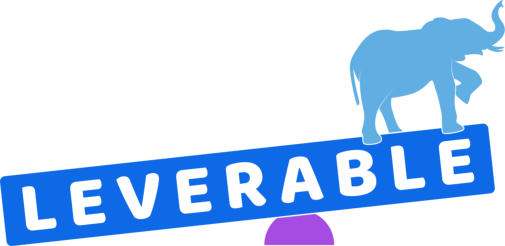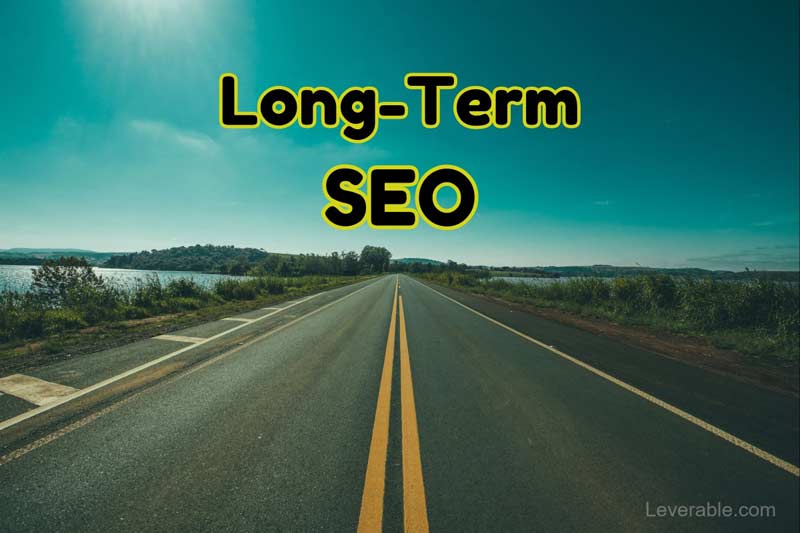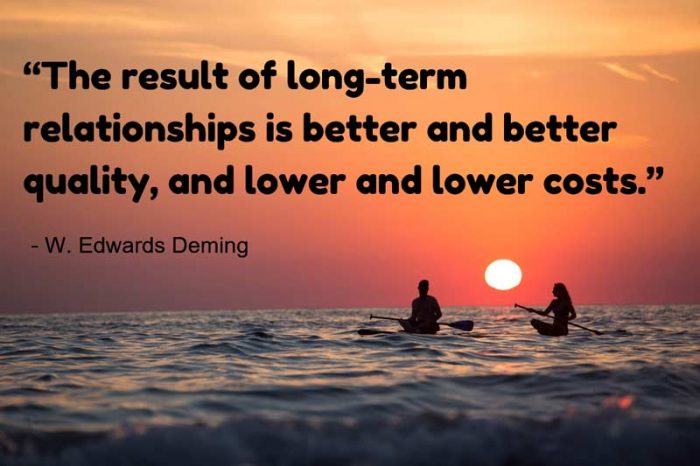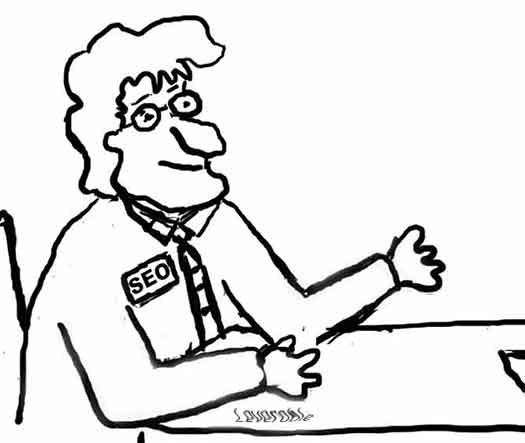I LOVE SEO.
Let me put it another way: It’s my job to help your company love SEO as much as I do.
Companies that HATE SEO (and it’s okay if you’re one of them) usually just have a bad relationship with a certain search engine. And, like any relationship, a wise outside voice can help put things back on track.
And this is a relationship worth saving. Search has the power to connect your company with the people who need your product or service when they need it the most. SEO can position your site to show up at the various stages of the customer buying cycle and make your company grow.
All relationships have a give and take dynamic. The person in charge of your SEO is first a giver, not a taker. If you do it right, Google may reciprocate.
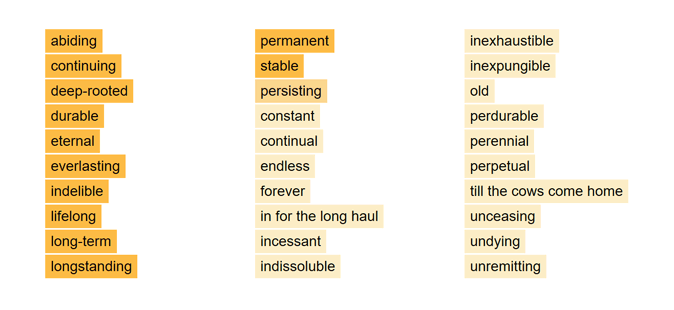
Why not Short-Term?
If you consider the give and take between website content and a search engine to be a relationship; is that relationship likely to be short-term or long-term?
Not many people ask me about doing short-term SEO strategies anymore. When links and exact match domains had more weight in search algorithms, it was more tempting than now. People did short-term. It worked. They accepted the consequences.
More than ever, I preach SEO to clients as a long-term endeavor. I get less push-back than you’d think when I warn that SEO is long-term, expensive and may bore them. They likely don’t see quick and easy tactics working when they look in search results.
Like a certain other kind of “relationship” that requires one party to pay their way through, PPC gets you results much faster.
You just have to pay for it.
That’s a horrible metaphor. And obviously PPC is a valid, legal way of marketing your business that has its place. Don’t expect it to provide you with the long-term satisfaction that organic search results would.
Make sense? A healthy long-term relationship is slower. You have responsibilities. But it’s much more rewarding.
ROI from Long-Term SEO
Reaching your customer online depends on your company’s relationship with the leading search engine. Google has made SEO more expensive by preferring the highest quality content (no more good content) in search results and counting only the best sources of links. If you’re scaling your SEO, you must have budget to spend. And you must be spending it effectively.
When a search bot crawls your website, is the information it needs accessible and formatted properly? The content needs to be at least a few notches better than competitors, right? And if you’re content is so great, Google will find links pointing to it right?
But your relationship with search engines isn’t personal, either. They have to determine your value by how much other people value your materials. They go off your reputation for quality. If that reputation isn’t there, why should a search engine point anyone your way?
There’s a yin and yang to climbing in SERPs. No one thing defines the relationship. Instead, over time, your website establishes itself as something of unique value – or fails to do this on a consistent basis and remains obscure.
A positive relationship with search engines like Google is a powerful thing. Your site’s content gives rich resources to their searchers, and in return, Google rewards you with visitors. This give and take relationship requires patience, cultivation, and time.
You’re making cognac here, not hooch.
Creating Valuable Content that Stands the Test of Time is HUGELY Profitable
Playing the long-game with SEO isn’t just smart but can also be incredibly profitable. Neil Patel, a major thought-leader in the world of SEO, points out that content marketing “…costs 62% less than traditional marketing and generates about 3 times as many leads.”
A simple definition of content marketing: the process of creating valuable content that ranks well in search engines and inspires readers to share in social. Once you start publishing content like this, you can then try to push these visitors down the sales funnel with other types of content. If a relationship is give and take, then the content part is where you give the most.
The investment required to create this content is going to be a one-time cost. But over the course of weeks, months and years, this content will be accessed by Googlebot, evaluated and scored. If Google thinks the content answers the reader’s question better than that of competitors, it’ll send more visitors.
Here’s a quick example of how Leverable helped a multi-location automotive client develop this kind of content.
- We interviewed the client on-site to learn about their products, customers and goals.
- Researched keywords and grouped them by products to match customer types.
- Collaborated with the client to develop titles and outlines for blog posts.
- Once approved, we brought in an expert writer (someone with hands-on experience in the industry) to write drafts and revise based on client feedback.
- We ended up with a nice group of quality expert posts addressing problems that potential customers have. We started publishing every 1 to 2 weeks.
- Performed other aspects of the SEO campaign like building authority, technical SEO and offsite promotion – all important components.
- After a year, organic visitors were up more than 5-fold. The new posts were now responsible for most of their organic site visits by far. The posts were getting email signups, comments and social engagement. The client now has a big piece of themselves working online for them.

The whole experience drove home how patiently doing the right thing pays off over time.
Google Wants SEO to Be Long-Term
If you’ve made it this far, I’ll bet you’re starting to like the idea of long-term SEO.
But for this section, I’d like you to do something. (Hey, I told you relationships are give-and-take, right?).
Go to Google and search for something you’re passionate about. It can be anything; sports, cars, fashion – whatever you’re into. Then, take a close look at the results that appear near the top (beneath that nasty advertised content).
You’ll notice that Google prefers reputable brands and websites that have stood the test of time. That’s because Google has a long track-record with these reputable sites. They feel relatively confident that the information their users find on these sites is reliable, current and interesting.
Remember, Google’s goal is to answer your questions as quickly and efficiently as possible. Reputation is proof that your site can deliver on the needs of their users.
When is the last time you saw an advertorial microsite appear in the SERPs?
Brands don’t risk it all on short-term tactics.
Bumps in the Ongoing Relationship
Any healthy relationship has its ups and downs. Sometimes you’re at fault; sometimes the other party. You move on.
A search engine penalty is the relationship equivalent of a night on the couch. Trying to figure out what you did wrong to grieve the other party can be intensely stressful since communication is limited. This clear, direct feedback highlights the things you need to work on. Having a “get your act together” moment isn’t always a bad thing. It’s often the wake-up call that allows you to adapt and prosper in the future. In some rare cases, the relationship must end.

One of the fastest ways to end up on the couch is by publishing content written for search engines. What? I know. You thought that’s what you were supposed to do, right? It was…
In 2001.
Content that is poorly written, factually inaccurate, or repeats keywords gets filtered out. New websites make rookie mistakes when it comes to SEO. Modern search algorithms ensure that they pay the price. “SEO copy” they used to call it. Google calls it spam.
Penalties and all the horrible things that go along with short-term search engine relationships waste time and budget if you’re building authority. The best relationships last.
Summary
Consider the value of a well-developed body of content you can build over years for your users. Seminal evergreen posts can surface in search results for decades. The compelling content that you give Google as your part of the relationship takes time. Like aged cheddar, it doesn’t happen overnight. When you read that SEOs need at least four months to a year to see results, you shouldn’t be surprised. Isn’t that about how long it takes for a good human relationship?
